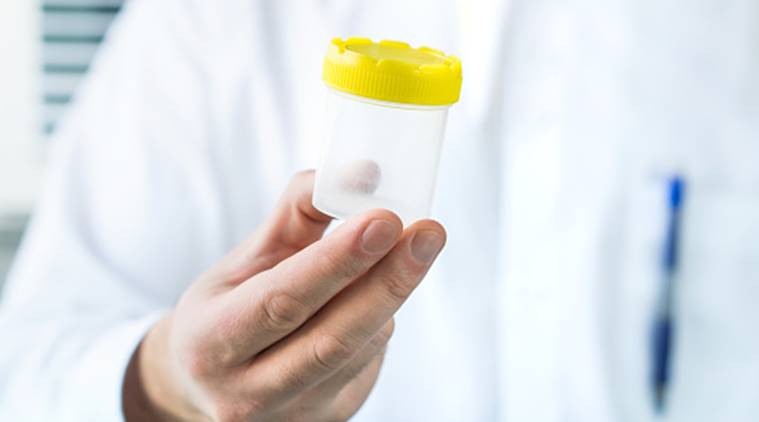- India
- International
Prostate Awareness Month: Tips to keep prostate health in check amid the pandemic
Keep these simple measures in mind to keep the prostate gland healthy.
 Here's what you need to know. (Source: Getty Images/Thinkstock)
Here's what you need to know. (Source: Getty Images/Thinkstock)Every year, September is observed as the Prostrate Awareness Month. The three major categories of prostatic disease are: Benign prostatic hyperplasia or BPH, prostatitis (infection/inflammation of the prostate) and prostate cancer. Of these, BPH is the most common. It is an age-related non-cancerous enlargement of the prostate which affects the passage carrying urine, thus creating an obstruction to the outflow path of urine, causing retainment of urine in the bladder. This, in turn, causes troublesome symptoms which include increased daytime frequency of urination, getting up frequently from sleep at night to pass urine, straining to improve the weak stream of urine and feeling incompletely satisfied even after having just passed urine.
According to the Dr Datson George, urologist, Lakeshore Hospital Kochi, “if BPH is left untreated, it rapidly worsens with time decreasing quality of life and leading to sudden painful inability to pass urine, recurrent urinary infections, the formation of stones and kidney damage”.
 Pay close attention to some of the signs. (Source: Getty Images)
Pay close attention to some of the signs. (Source: Getty Images)
Diagnosis of BPH requires a mixture of physical, radiographic examinations and a few lab tests. Physical examination includes DRE (digital rectal examination) — a physical examination of the prostate — that is important to differentiate it from palpable prostate cancer. Abdominal and pelvic ultrasound also indicates the size of the prostate gland. Lab tests include PSA (Prostate-specific antigen), a protein that is made only by the prostate. When the prostate is healthy, very little PSA is found in the blood. This is applicable to new patients (those presenting for the first time).
Management of uncomplicated BPH is possible through lifestyle modifications and medications
*Fluid intake should be within 1.5-2 litres per day, according to the climate.
*Avoid or cut down on caffeinated drinks such as coffee, tea, etc. A healthy diet, yoga and relaxation not only helps keep your sugars, blood pressure and cholesterol (which are believed to cause BPH and its progression) in check, but also get rid of constipation, which worsens BPH symptoms.
*Sleep for 7-8 hours daily.
*It is essential to at least tele-consult your urologist and get a prescription before starting any drug therapy in these times.

Dr George mentioned that surgical removal of prostatic tissue is the last step if symptoms are uncontrolled by medication or if complications like infections, stones, kidney damage develop. “Minimal risk of prostate surgery under normal circumstances has been amplified to the high-risk category during the covid period despite the availability and use of cutting-edge surgical technology. This is because of the potentially deleterious effects of coronavirus on all our major organs, including the lungs, liver, kidneys, heart and brain. A nCoV-19-positive postoperative patient has double the risk of complications. Therefore, it is prudent to conduct surgery only in case of life-threatening conditions like uncontrollable or excessive bleeding. Otherwise, it is safer to wait until the pandemic situation clears.”
ALSO READ | Prostate Cancer Awareness Month: Some common myths busted
Adding a note of warning, the urologist said, “Importantly, in these times more than ever, the patient should be vigilant to watch out for the development of ‘red flag signs’:
*Sudden inability to pass urine with accompanying lower abdominal pain
*Burning or passing blood or pus during urination
*Sudden onset of severe pain in the flanks
*Swelling around the eyes, on the feet
*Inability or difficulty attaining and maintaining an erection
In these cases, he should visit his doctor immediately and seek proper treatment without delay.
For more lifestyle news, follow us: Twitter: lifestyle_ie | Facebook: IE Lifestyle | Instagram: ie_lifestyle
Apr 30: Latest News
- 01
- 02
- 03
- 04
- 05


























